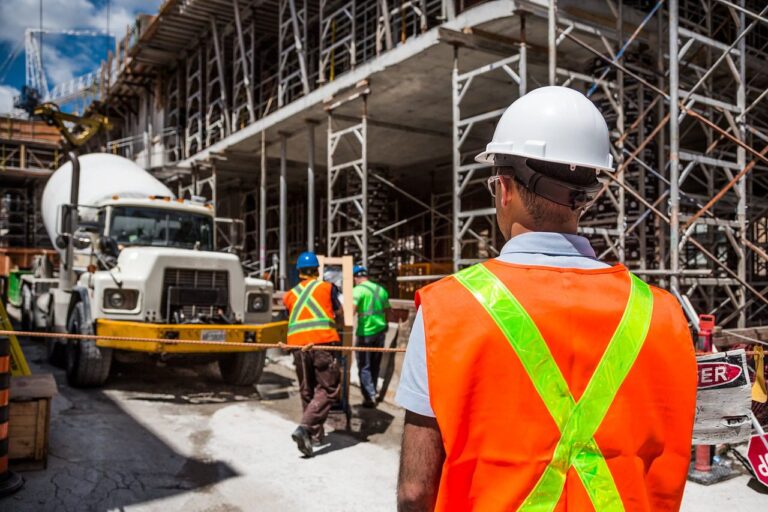Last week, Labour’s Planning and Infrastructure Bill was introduced to parliament, and the construction industry hopes it will kick-start UK housebuilding.
Planning blockages and delays have been one of the main factors blamed for housebuilding in the UK consistently falling below government targets in recent years, affecting both the construction of homes and of supporting infrastructure.
In a similar way to the previous government, Labour has set out housebuilding targets since it won the general election last year, stipulating a goal of 1.5 million new homes during this parliament – or by 2029 when the next general election is set to be held.
A key part of this plan has been planning reform, although there are also concerns around the UK’s shortage of skilled workers in the construction industry as well as the availability and pricing of basic building materials such as bricks and timber.
On 11th March, the Planning and Infrastructure Bill was introduced to parliament, setting out a number of “significant measures” that are intended to “speed up planning decisions to boost housebuilding and remove unnecessary blockers and challenges to the delivery of vital developments like roads, railway lines and windfarms”.
The party also hopes this will boost economic growth, along with connectivity and energy security, with part of the proposal also aimed at “delivering for the environment”.
What’s in the Planning and Infrastructure Bill?
There are eight key sections covered in the newly introduced Planning and Infrastructure Bill:
- Planning committees: A new ‘national scheme of delegation’ will be introduced that will decide which applications should be determined by officers and which should go to committee. It will also have control over the size of planning committees, while mandatory training for committee members will also be banned. Councils will get the power to set their own planning fees to allow them to cover their costs.
- Nature restoration fund: This will be established to ensure builders can meet environmental obligations “faster and at greater scale”. They will be able to pool contributions to fund larger environmental interventions.
- Compulsory purchase reform: When land needs to be bought to build major developments, the process will be made more efficient, improving the current compulsory purchase process which can be lengthy. The ‘hope value’ of land will be removed where justified in the public interest.
- Development corporations: These will be strengthened to make it easier to deliver large-scale development, such as planned ‘new towns, with enhanced powers similar to ones that had been used in the past to create post-war new towns.
- Strategic planning: Spatial development strategies will be implemented across England, boosting growth by looking across multiple local planning authorities for the most sustainable areas to build and ensuring there is a clear join-up between development needs and infrastructure requirements.
- National Significant Infrastructure Projects (NSIP): A faster NSIP regime will deliver infrastructure projects faster, streamlining processes to make decisions on consultations for projects like windfarms, roads or railway lines.
- Clean energy: Projects that help achieve clean power by 2030 will be prioritised for grid connections, after some projects have faced waits of more than 10 years.
- Bill discounts: People living within 500m of new pylons across Great Britain will get money off their electricity bills up to £2,500 over 10 years, while new guidance will set out how developers should ensure communities hosting transmission infrastructure can benefit, by funding projects like sports clubs, educational programmes, or leisure facilities.
Impact on housebuilding
Many in the industry are optimistic about the government’s plans for unlocking the planning system and allowing more growth in the construction industry, although there remains other barriers to housebuilding.
Mark Reynolds, Executive Chair of Mace Group and Co-Chair of the Construction Leadership Council, said: “For too long the UK’s planning systems have inhibited growth, with layer upon layer of checks and balances stifling productivity, confidence, investment and jobs.
“These proposed changes show this government is listening to industry and taking reform seriously; recognising that new homes and infrastructure are necessary to inject life into the economy.
“Our construction industry is ready to meet the challenge, and the measures highlight how mindful growth can support communities and our net-zero ambitions.”
Meanwhile, Knight Frank’s Anna Ward notes that the latest bill alongside the government’s heavy focus on housebuilding and delivery should “create new opportunities in the residential development market”.
However, she notes that a pick-up in housing demand alongside an increase in housebuilding activity could “further strain the availability of skilled subcontractors and materials, resulting in increased costs and construction delays”.
She concludes: “While the government’s signals have been encouraging, this spring presents a key opportunity to outline concrete proposals that could attract more talent and drive greater investment in the sector.”










